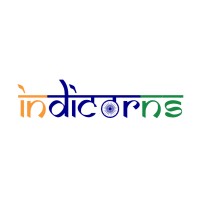Indicorn refers to Indian startups that have achieved both significant revenue and profitability within a defined period. Unlike unicorns, which are startups valued at over $1 billion, Indicorns focus on financial sustainability and actual business success.

What are Indicorns?
- Indicorns are an alternative to the term “unicorns”.
- They are profitable startups that have shown remarkable growth and innovation.
- Indicorns can be bootstrapped, acquired, or publicly listed.
Key Criteria for Indicorns
A company qualifies as an Indicorn if it:
- Was founded in the last 15 years.
- Has crossed ₹100 crore (approximately $12 million) in annual revenue by FY 2023.
- Is profitable.
This concept was introduced by Titan Capital, a venture capital firm led by Kunal Bahl and Rohit Bansal, to highlight startups that focus on growth with profitability rather than just high valuations.
Why Are Indicorns Important?
- Sustainable Growth: Unlike unicorns, Indicorns focus on long-term financial stability rather than just raising funds.
- Profitability Focus: They generate real profits, making them less dependent on external funding.
- Economic Impact: Indicorns contribute significantly to India’s economy by creating jobs and fostering business growth.
FAQs
Current Indicorn Landscape?
As of FY 2023, there are around 190 Indicorns in India, generating approximately ₹1.1 lakh crore in revenue and ₹8,600 crore in profits collectively.
INDICOM could refer to different entities depending on the context?
Tata Indicom – A former telecom brand in India under Tata Teleservices, which provided mobile and broadband services. It ceased operations after merging with Bharti Airtel.
Indicom Electronics – A company engaged in electronics manufacturing and distribution, known for products like transformers, circuit boards, and power solutions.
INDICOM (International Communication) – A general term used for global telecom and IT services, covering networking, data transmission, and communication technologies.